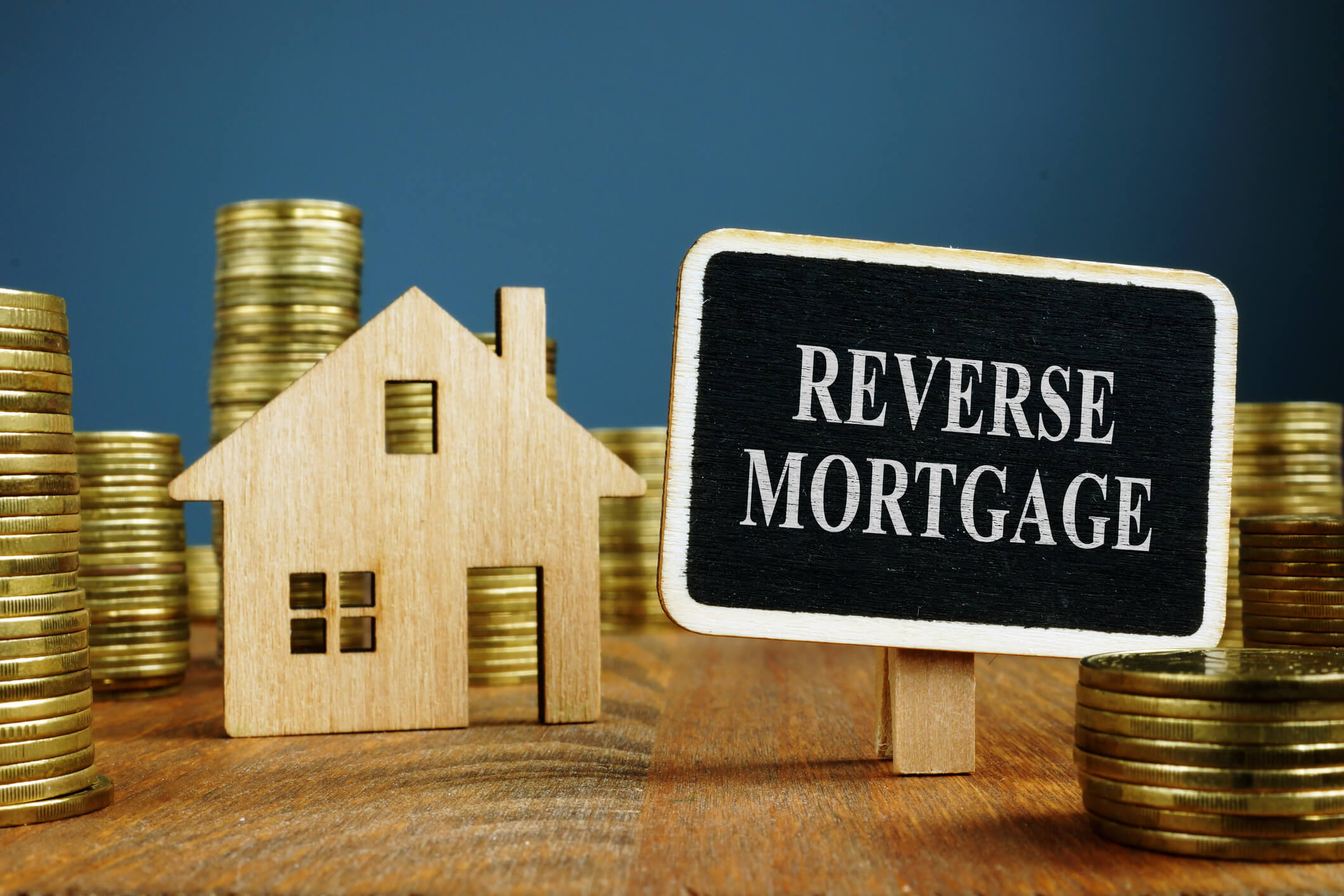Think of a reverse mortgage like a traditional mortgage where the roles are shifted. In a traditional mortgage, a person takes out a loan to buy a home and then repays the bank over time. In a reverse mortgage, the person owns the home, and they borrow against it, getting a loan from a money lender that they may not necessarily ever repay.
Most reverse mortgages are issued through government-insured plans that have strict rules and lending guidelines. There are also private, or exclusive, reverse mortgages issued by private non-reserve lenders, but those are less controlled and have an increased likelihood of being scams.

How Does Reverse Mortgage Work?
Using a reverse mortgage is fairly straightforward: It starts with a mortgagor who already owns a home. The mortgagor either has significant equity in their home (usually at least 50% of the property’s value) or has paid it off entirely. The mortgagor decides they need the financial resources that come with detaching equity from their home, so they work with a reverse mortgage specialist to find a lender and a program.
Reverse Mortgage Eligibility
To qualify for a government-funded reverse mortgage, the owner of a home being mortgaged should be no younger than 62 years old. Borrowers can only borrow against their primary residence. They must also either own their home entirely or have at least 50% equity with no more than one primary lien. Borrowers cannot have a second lien or a second mortgage. If the borrower doesn’t own their home entirely, they have to pay off their existing mortgage with the reverse mortgage’s money.
Only certain properties qualify for government-funded reverse mortgages. Qualified properties include:
- Single-family dwellings
- Multi-unit properties with no more than four units
- Manufactured homes built-in or after June 1976
- Condos or townhomes
In the case of government-sponsored reverse mortgages, borrowers must also attend an information session with an approved reverse mortgage specialist. They also must remain current on property taxes and homeowner’s insurance and keep their property in good condition.

Reverse Mortgage Borrowing Limits
If you get a private reverse mortgage, there are no limits on how much you can borrow. Individual lenders set all limits and restrictions. However, owners are forbidden from borrowing up to their home’s value or the current maximum claim amount when using a government-funded reverse mortgage program. Borrowers can only use a percentage of their property’s worth. Part of the property’s value is used as collateral for loan expenses, and lenders insist on a safeguard if property values decrease. Borrowing limits are adjusted based on the borrower’s age and credit and the loan’s rate of interest.
Reverse Mortgage Costs
There are two primary costs for government-funded reverse mortgages:
Interest rates: Interest rates are generally fixed if you take a lump sum and rates are from under 3.5% to a rate comparable to traditional mortgages and significantly lower than other home equity loans. They are variable based on the London Interbank Offered Rate (LIBOR), with a lender margin.
Types Of Reverse Mortgages
Most reverse mortgages are government-protected loans. This is similar to other government loans, including USDA and FHA loans. These products have rules that traditional mortgages don’t carry because they’re government-protected. These include suitability criteria, underwriting processes, funding options, and, sometimes, restrictions on the uses of funds. There are also exclusive reverse mortgages, which do not have the same strict suitability requirements or lending requirements.

Single-Purpose Reverse Mortgage
Single-purpose loans are normally the least costly type of reverse mortgage. Nonprofits and state and local governments provide these loans for particular purposes imposed by the lender. These loans may be supplied for things like repairs or improvements. However, loans are only available in certain areas.
Home Equity Conversion Mortgage
Home equity conversion mortgages are funded by the U.S. Department of Housing and Urban Development. These mortgages can be more costly than traditional mortgages. However, loan resources can be used for just about anything. Mortgagors can choose to get their money in several different ways, including fixed payments, a line of credit, a lump sum, or a mixture of regular payments and other credit lines.
Proprietary Reverse Mortgage
Proprietary reverse mortgages are exclusive loans that aren’t funded by a government agency. Lenders set their entitlement requirements, rates, fees, terms, and the financing procedure. While these loans can be the simplest to get and the quickest to fund, they’re also known to attract dishonest professionals who use reverse mortgages as an opportunity to scam unsuspecting seniors out of their property’s equity.
 About Complete Controller® – America’s Bookkeeping Experts Complete Controller is the Nation’s Leader in virtual bookkeeping, providing service to businesses and households alike. Utilizing Complete Controller’s technology, clients gain access to a cloud-hosted desktop where their entire team and tax accountant may access the QuickBooks™️ file, critical financial documents, and back-office tools in an efficient and secure environment. Complete Controller’s team of certified US-based accounting professionals provide bookkeeping, record storage, performance reporting, and controller services including training, cash-flow management, budgeting and forecasting, process and controls advisement, and bill-pay. With flat-rate service plans, Complete Controller is the most cost-effective expert accounting solution for business, family-office, trusts, and households of any size or complexity.
About Complete Controller® – America’s Bookkeeping Experts Complete Controller is the Nation’s Leader in virtual bookkeeping, providing service to businesses and households alike. Utilizing Complete Controller’s technology, clients gain access to a cloud-hosted desktop where their entire team and tax accountant may access the QuickBooks™️ file, critical financial documents, and back-office tools in an efficient and secure environment. Complete Controller’s team of certified US-based accounting professionals provide bookkeeping, record storage, performance reporting, and controller services including training, cash-flow management, budgeting and forecasting, process and controls advisement, and bill-pay. With flat-rate service plans, Complete Controller is the most cost-effective expert accounting solution for business, family-office, trusts, and households of any size or complexity.




